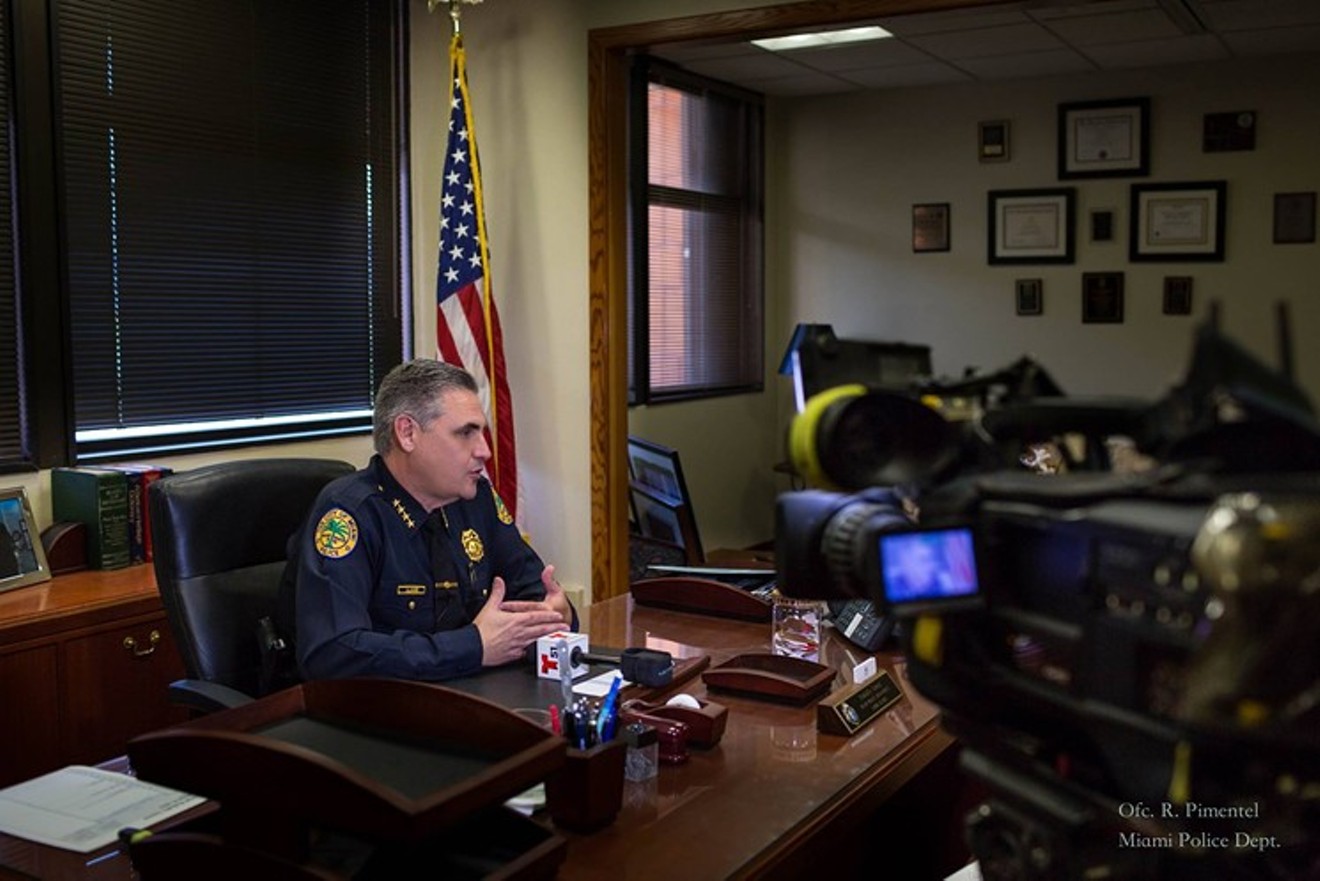A new Miami lawsuit suggests exactly why police need to display caution when chasing down suspects: The complaint filed June 23 accuses undercover City of Miami cops of engaging in a high-speed pursuit that violated departmental policy and ultimately claimed the lives of a 21-year-old who was fleeing police and an innocent 44-year-old who suffered gruesome injuries and died on the scene.
Worse yet, the family of the bystander, Javier Muñoz, claims that because the cops were undercover, the department has not named the officers involved in the chase in the two years since the crash. (The City of Miami does not comment on active litigation.)
The accident was so gruesome it made local TV headlines two years ago. On November 9, 2015, police originally said they caught a black Infiniti "speeding" through Model City late that night and that the car was registered as stolen. They claim the driver, 21-year-old Lionel Dorilas, sped away southbound on NW 12th Avenue. But at NW 54th Street, cops claim,
Video obtained by NBC 6 showed bystanders rushing to wrench
At the time, police danced around what exactly had caused the crash: In a Miami Herald recap the next day, a spokesperson for the department admitted only that detectives had "determined that there was possibly some law enforcement involvement prior to the crash."
But all along, Muñoz's family maintained that cops were the ones chasing
Now, nearly two years later, Muñoz's family has sued the city, alleging that the police chase violated departmental policy, which warns officers not to pursue suspects unless they are fleeing violent felony charges. The family claims Muñoz's civil rights were violated.
"As the police department refuses to provide the names of the officers who were engaged in the
The suit says Directive 7.9 instructs officers to terminate police pursuits once they determine the offender is accused of a nonviolent felony. In addition, the suit says two other departmental rules instruct City of Miami cops to "properly assess the seriousness of the crime" before engaging in a high-speed
The family of the man who












